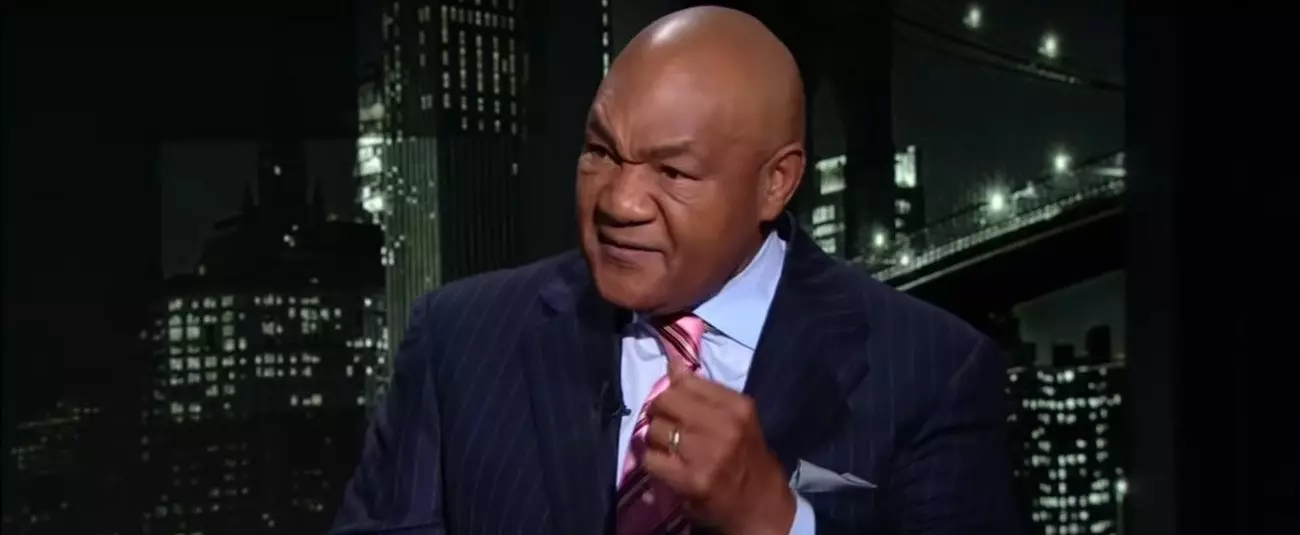In September of 1987, the sporting world witnessed a remarkable chapter in boxing history as Bobby Crabtree squared off against George Foreman in what would become a memorable bout in Foreman’s unexpected comeback journey. Just months after declaring his return to the ring at the age of 38, Foreman was looking to rekindle his dominance, and Crabtree, dubbed “The Fighting Hillbilly,” emerged as a formidable opponent. Their match did not merely reflect the athletic prowess of two heavyweights; it symbolized resilience, grit, and the unpredictability of boxing.
Crabtree stepped into the ring not just as an underdog but as a hopeful challenger, armed with the audacity that comes with youth. Although he was only 28 years old, the heavyweight division was notoriously ruthless, and fighters of Crabtree’s caliber were seen as mere stepping stones for legends like Foreman. Yet, as the fight unfolded, it became apparent that Crabtree possessed an inner strength that would push Foreman to his limits.
Fighting Against the Tide
“It’s never easy facing a giant, but I gave it my all,” Crabtree recalls with a sense of nostalgia. His frank admission encapsulates the spirit of every boxer who steps into the ring. On that fateful night, Foreman may have been the seasoned giant, but it was Crabtree who unleashed some telling punches, shaking the ground beneath Foreman’s feet—figuratively, of course. “There were moments when I felt I could take him out,” he reminisces, reflecting on the adrenaline-driven bursts of hope that surged through him during the fight.
However, the reality of the sport is relentless. Despite any fleeting glimpses of success, Crabtree ultimately succumbed to Foreman’s overwhelming power, losing in the sixth round. Yet, what stands out in this narrative is not the loss but the impact that fight had on both pugilists. Foreman himself acknowledged how Crabtree’s tenacity gave him pause to reconsider his comeback. This dynamic represents an essential truth in boxing: every fighter leaves an indelible mark on their opponents.
The Weight of History
When assessing Foreman’s legacy, Crabtree doesn’t hold back in celebrating the heavyweight icon: “He’s right at the top of the list.” This reverence speaks volumes about Foreman’s character both inside and outside the ring. Foreman’s story is not solely about the belts and accolades but also about redemption—his ability to rise again in a sport that chews up and spits out its participants. As Crabtree points out, winning the heavyweight championship again at 45 is a feat that only a handful of athletes can claim.
Crabtree acknowledges a bittersweet juxtaposition; his record stands at a commendable 56 victories against 35 losses. But what truly defines him is not the numbers, but the memories of the titans he faced. “You know, I was just 201 pounds going into that fight. Today, that would put me in the cruiserweight division. But back then, it was about heart over size,” Crabtree says, emphasizing the seriousness of passion in the cockpit of sports.
A Legacy Beyond the Ring
Reflecting on his fighting career, Crabtree takes pride in the diversity of his opponents, each match contributing to a rich tapestry of experiences. To face established names and competing champions—a feat that would leave most boxers in awe—he is remarkably grounded. From his confrontations with ‘King’ Ipitan to the harrowing experience against Michael Dokes, each bout not only tested his physical limits but also shaped his character.
In Crabtree’s estimation, boxing has a unique way of forging relationships—even amidst fierce competition. He candidly notes, “I’ve forgotten how many former heavyweight champions I fought,” revealing an understated humility that often gets overshadowed by his fighting bravado. The grit of his journey, filled with stories of camaraderie and rivalry, illustrates a profound respect for what the sport represents.
The Indomitable Spirit of a Fighter
Now, as he reminisces about his days in the ring, Crabtree remains a beacon of resilience. Even amidst the aches from his boxing days, he shows no signs of relinquishing his passion for the sport. “I still get on the heavy bag,” he states, emphasizing his enduring love for boxing. His dedication to staying active, despite physical challenges, is emblematic of the fighting spirit that all great boxers share.
As the boxing community mourns the loss of Foreman, Crabtree encapsulates the camaraderie and respect born from shared experiences within the ring. Such is the life of a fighter: always learning, always growing, and forever honoring those champions who have bravely walked the same path before them. In his reflections, we find not just nostalgia, but a sweeping honor for the sacrifices made in the pursuit of greatness—a defining quality that transcends the ring and echoes in the hearts of fans and fighters alike.


Leave a Reply